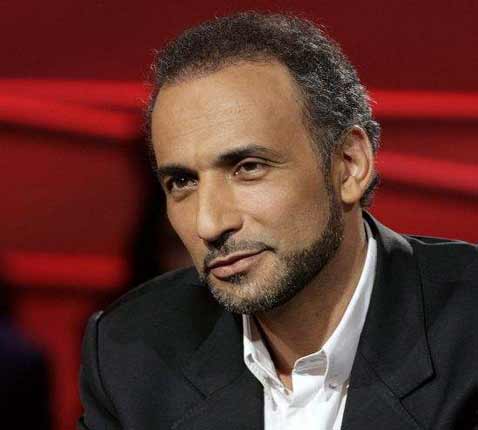Islamic scholar hits out over sacking
Dutch authorities fire Swiss intellectual and TV anchor over links to Iran

The controversial Islamic theologian Tariq Ramadan has been fired from two jobs in the Netherlands for allegedly endorsing the Iranian regime by hosting a chat show on a Tehran-backed TV channel.
Mr Ramadan, already persona non grata in the United States, has dismissed the decisions as "simplistic" and driven by the "Islamophobia" generated in Dutch politics by the populist campaigner Geert Wilders.
The Swiss writer, lecturer and theologian, 46, has been frequently accused of preaching a moderate "European" Islam to Western audiences and taking a more extreme line when talking to fellow Muslims. He has been hailed by his admirers as an "Islamic Martin Luther", capable of reconciling the Koran with democracy and Western modernity, and attacked by critics as an anti-Semite and terrorist fellow traveller.
Mr Ramadan has, nonetheless, become one of the most influential Islamic voices in the world. He has been given a series of high-profile jobs by European institutions and governments, including a place on a task force set up by Tony Blair in 2005 to combat Islamic extremism in Britain.
The city of Rotterdam and the Erasmus University based in the city have jointly decided to dismiss him from his posts as community adviser and visiting lecturer on religion. This follows several days of heated debate in the Netherlands about Mr Ramadan's position as a presenter of a political chat show on Press TV, a London-based, Iranian-backed satellite TV channel.
In a joint statement, the city and the university criticised Mr Ramadan for remaining host of Islam and Life despite the "hard-handed stifling" of opposition to the results of the July elections. They said that he had "failed sufficiently to realise the feelings that participation in this television program... might provoke in Rotterdam and beyond".
In an open letter on his website, Mr Ramadan has dismissed the allegations as driven by Dutch politics rather than a TV programme devoted to "critical debate" on Islam.
"Should we be surprised that this latest accusation has surfaced only in the Netherlands?" he wrote.
"It is as if I in particular, and Islam in general, were being used to promote certain political agendas in the upcoming Dutch elections. Geert Wilders, who wins votes while comparing the Koran to Hitler's Mein Kampf, casts a long shadow."
Mr Ramadan said that he had publicly criticised the repression of opposition in Iran and supported the country's "long march... toward transparency and respect for human rights".
His TV show was committed to "critical debate". His guests had included "atheists, rabbis, priests, women with and without headscarves". They had debated issues such as "freedom, reason, interfaith dialogue, Sunni versus Shia Islam, violence, jihad, love and art".
"I challenge my critics to scrutinise these programmes and in them to find the slightest evidence of support for the Iranian regime."
Mr Ramadan is the grandson of Hassan al-Banna, one of the founders of the fundamentalist Muslim Brotherhood, while his great uncle, Gamal al-Banna, was a prominent liberal Islamic reformer.
Critics point to a puzzling ambivalence in some of Mr Ramadan's teachings and writings, reflecting the influence of both his grandfather and his great uncle.
He argues for a "European Islam" which will respect European traditions and laws but he also speaks of the supremacy over secular law of the Koran and sharia. In 2003 he refused, during a TV debate with the future president Nicolas Sarkozy, to condemn the use of stoning as capital punishment but called for a "moratorium" on it.
Join our commenting forum
Join thought-provoking conversations, follow other Independent readers and see their replies
Comments
Bookmark popover
Removed from bookmarks